Cancer discovery news
Our researchers are making the discoveries that defeat cancer. Read the latest findings from our world-leading research.
Visit our main news hub to read about news on new funding, our fundraising activities and much more. If you want to keep updated on our news, you can follow us on social media or sign up for our Search newsletter.
If you’re a journalist and want to find out more, you can contact our media relations team.
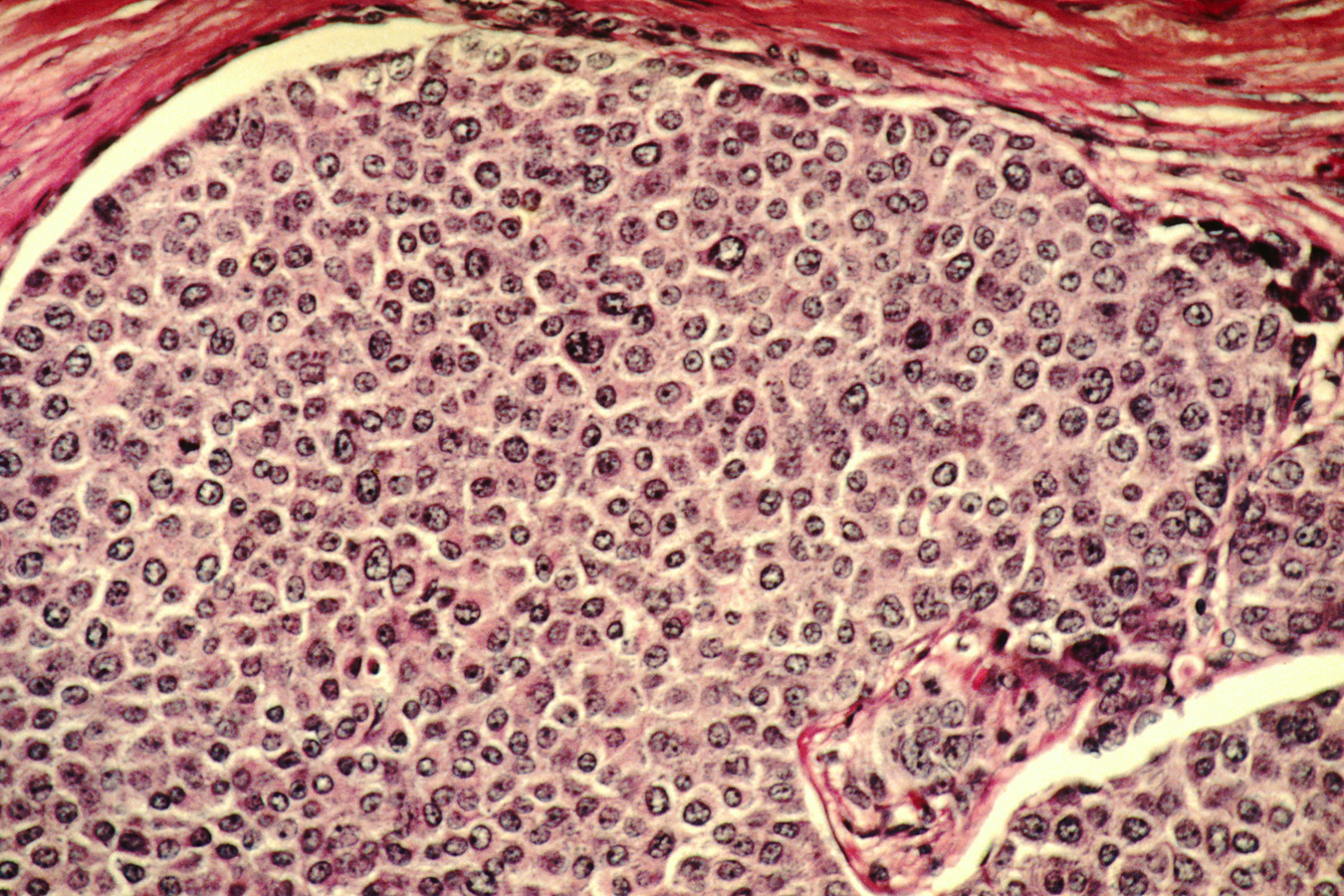
New weakness to target breast cancer cells discovered
Researchers at The Institute of Cancer Research, London, have uncovered a hidden weakness in some breast cancer tumours that could lead to smarter treatment decisions.
945x532.png?sfvrsn=310c2acf_2)
New protective role of gene frequently mutated in cancer uncovers potential therapeutic target
New research into how cancer develops has uncovered more detail about the importance of the centromere, a region of human DNA that has a critical role in effective cell division.
-mucinous-ovarian-tumour---945x532.jpg?sfvrsn=5e9bb32b_2)
Smarter chemotherapy approach could delay drug resistance in ovarian cancer
Adaptive chemotherapy – a personalised approach to giving chemotherapy – can prolong survival in lab models of ovarian cancer, according to new results published in the journal Cancer Research.
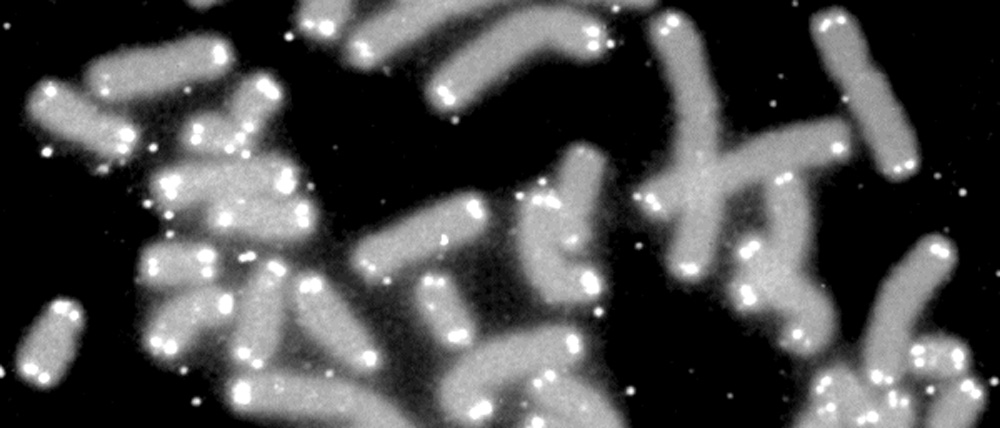
New study uncovers precise mechanism by which telomeres help prevent cancer-driving genetic changes
Scientists have worked out how a protective element of our DNA helps prevent an abnormal genetic event that can lead to cells becoming cancerous.

Molecular profiling is key to better outcomes for young adults with brain cancer, study shows
A recent study on an aggressive type of brain cancer has significantly advanced the understanding of the spectrum of tumours that occur in teenagers and young adults (TYA).

Overuse of CT scans could cause 100,000 extra cancers in US
The overuse of CT scans could cause over 100,000 cases of cancer in the US – with almost 10,000 cases in children, researchers have warned.
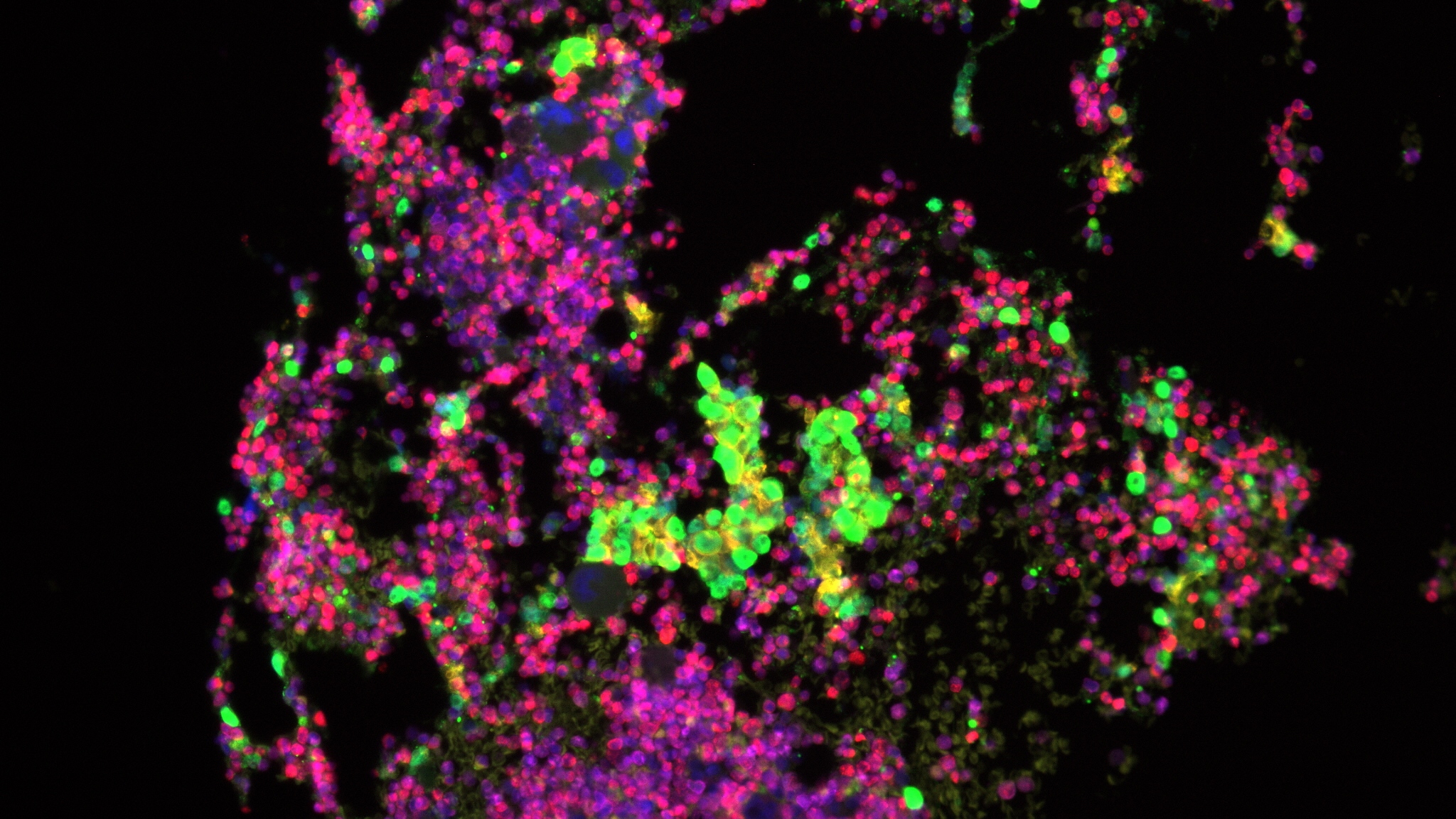
Simple spit test could finally turn the tide on prostate cancer
A spit test, where a sample can be collected at home, is more accurate at identifying future risk of prostate cancer for some men than the current standard PSA blood test, according to a study by ICR scientists.
-carousel-945x581.jpg?sfvrsn=d29fb9e9_2)
Newly identified biomarker could improve treatment for people with rare type of ovarian cancer
Scientists at The Institute of Cancer Research, London, have identified a gene that affects how ovarian clear cell carcinoma (OCCC) could respond to a new class of drug called ATR inhibitors.
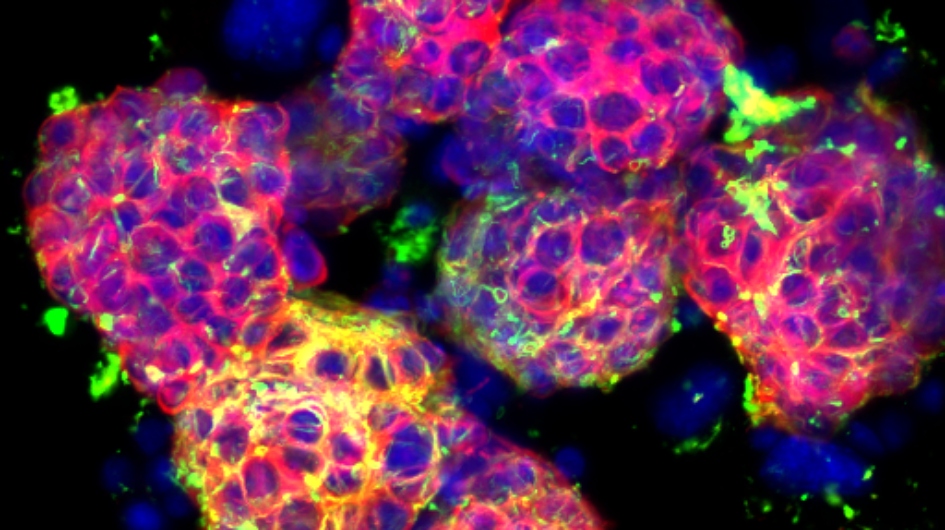
Innovative neuroblastoma research could lead to tailored treatments for high-risk patients
New research has provided insight into the biological mechanisms that may contribute to poor outcomes in certain cases of neuroblastoma – a cancer that develops in nerve tissue and primarily affects children.
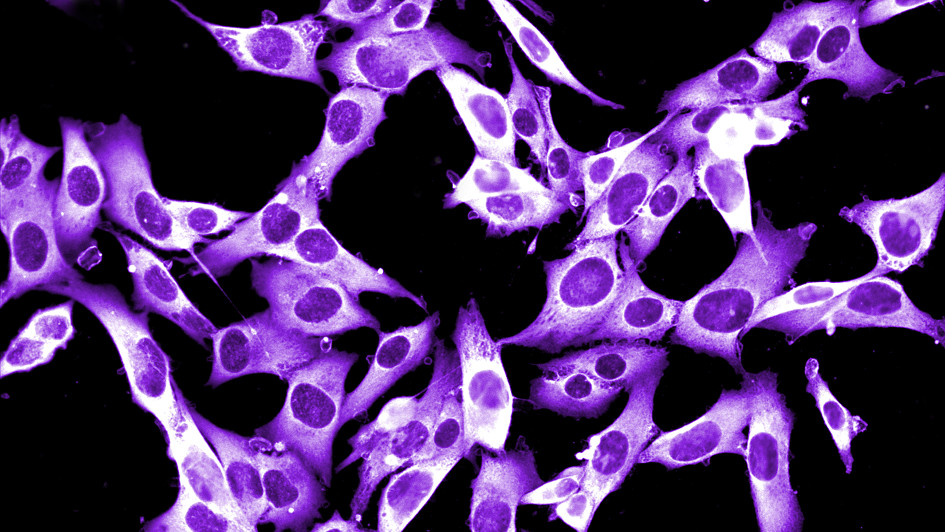
New AI technology could bring cancer drugs to patients in half the current time
Scientists have developed a revolutionary AI ‘fingerprint’ technology that can accurately show how cancer cells respond to new drugs, by simply observing changes to their shape.

£1.5million funding boost to help unlock the genetic secrets of aggressive neuroblastoma
Scientists from The Institute of Cancer Research, London, will be part of a team of international researchers who have secured funding to study the genetic secrets of childhood cancer neuroblastoma.
.jpg?sfvrsn=999b1809_2)
Genetic factors likely to determine which patients will benefit from new prostate cancer combination therapy
Researchers have uncovered several biological signs that may determine how metastatic castration-resistant prostate cancer (mCRPC) responds to a new treatment combination.